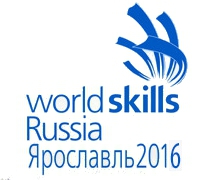The Forum’s concept
One of the key tasks in the field of education management is creating the conditions required to improve results in education (improving the quality of education) among primary, secondary, and university students. Development priorities in this field include:
- improving on the level of educational results achieved in the past
- achieving results in new areas which were not previously included in education objectives
The technologies and tools used to assess results in education are changing constantly. In the Russian Federation, for example, the technology used to administer the national exam for high school graduates (the EGE) has being undergoing changes for more than 10 years. The assessment of the performance of school leavers (through the EGE) is complemented by an additional assessment of their academic achievements at various stages of their education (in the fourth and ninth years of schooling).
The new Russian educational standards for general and professional education include achievements in new areas (metadisciplinary and personal skills), in addition to mastering traditional subjects. To date, there has been virtually no assessment of these new skills carried out by the state bodies which assess education quality in the Russian Federation. The work that is done to acquire metadisciplinary and personal skills cannot be described as effective without reliable information about the results being achieved by the education process.
The quality of pupils’ education cannot be limited by the extent to which their educational results comply with state standards in education. An education can only be deemed to be of a high quality if the educational results meet the expectations of numerous partners and service users in the field of education (parents, employers and businesses, social institutions, and so on). The expectations of various groups of users and partners may differ from one another substantially, but, by contrast with other state standards, here partner expectations are not formally drawn up in most cases. A public assessment is a priori one that provides for plurality and variability, in terms of those assessed and as regards the criteria and technologies used in the assessment.
Activities aimed at improving results in education can only be effective if we create systems for assessing the quality of education at various levels (school or professional educational organizations, municipal or regional education systems). The fixed state procedures for assessing the quality of education can be enhanced with variable, optional procedures based on international comparative studies and public assessments. A significant resource for further development is self-assessment by educational institutions.
At present, there is a risk in the Russian education system that the procedures for assessing education quality will be adjusted without making thorough use of the results of those assessments in practice to manage education at various levels. Management activities must be based on their impact on the key factors which determine education quality (the competencies of teaching staff, etc.).
It would appear sensible to discuss issues related to managing education quality on the basis of an assessment of educational results in the context of international experience and international practices.


